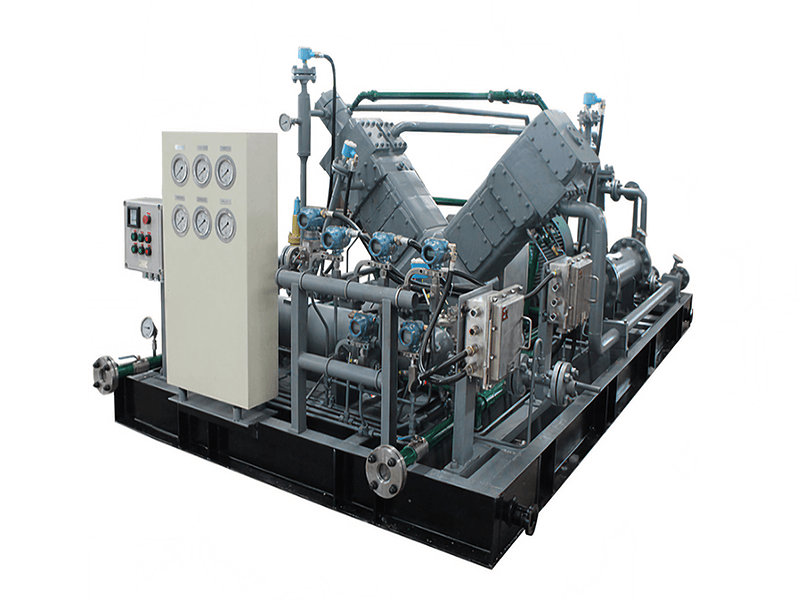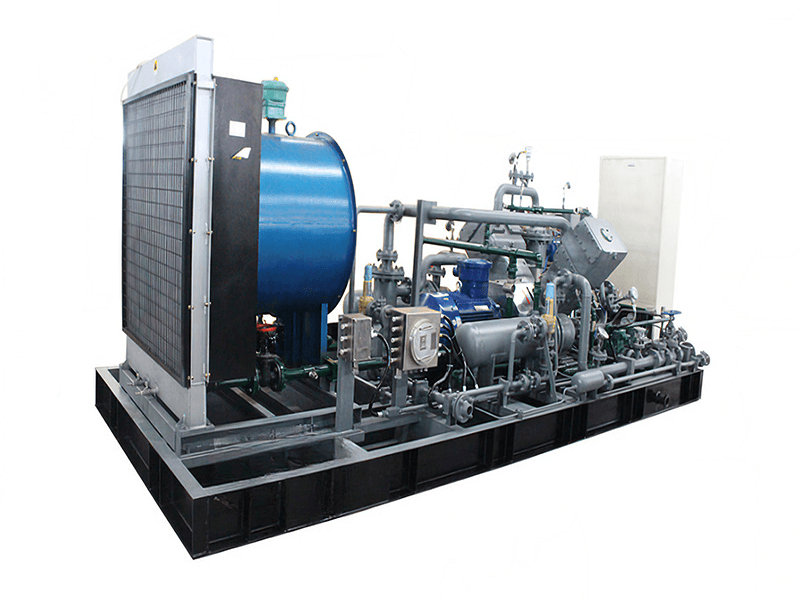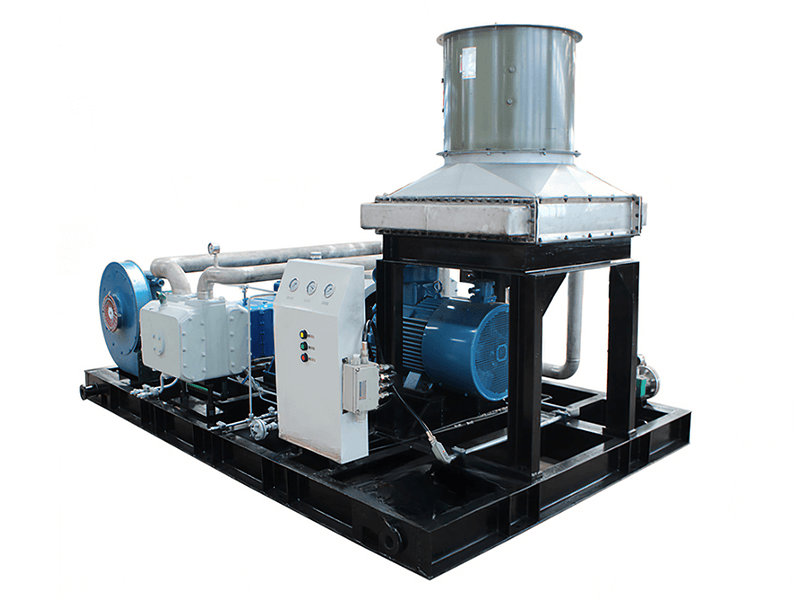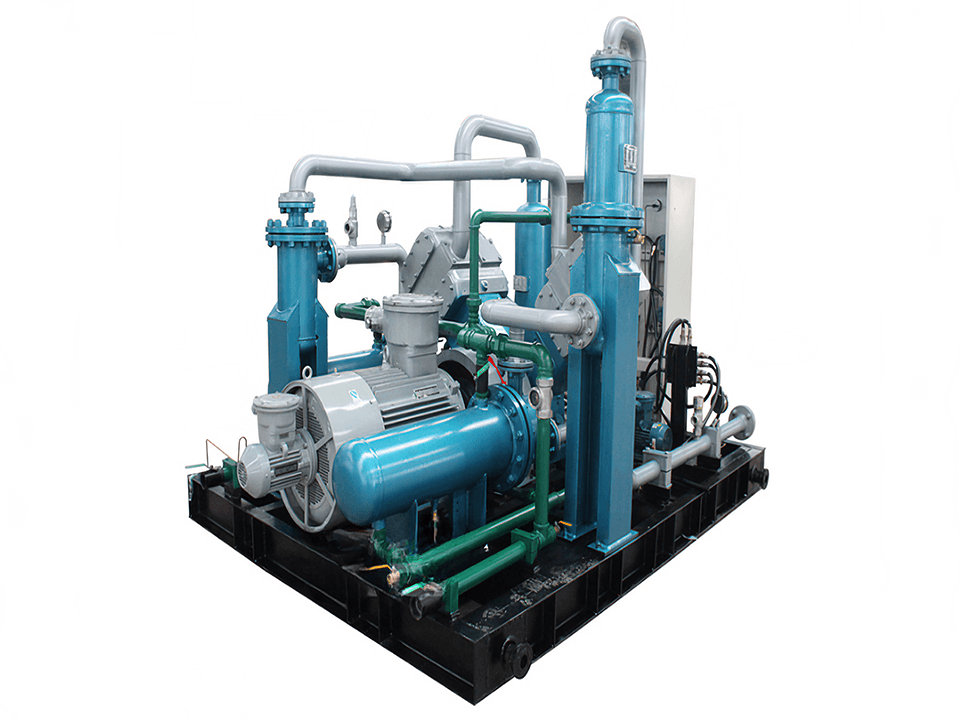Screw compressors hold a prominent position in industrial gas processing due to their high efficiency, stability, and versatility. Their unique twin-screw design enables them to handle various gaseous media, ensuring widespread applications in industries such as petrochemicals, food and pharmaceuticals, and power generation. The following presents the main application scenarios for screw compressors and analyses of typical case studies. Compression of Gases in the Petrochemical Industry
In refineries and chemical plants, screw compressors are commonly used to compress process gases such as hydrogen, nitrogen, hydrocarbons, etc. Their oil-free (dry) or oil-flooded (wet) designs meet different purity requirements.
Case Study:
In a large refinery in Saudi Arabia, screw compressors are used to compress circulating hydrogen in a hydrocracking unit. The compressors feature a dry, oil-free design to ensure hydrogen purity, while variable frequency drive (VFD) regulation adapts to flow fluctuations, achieving annual energy savings exceeding 20%. Supply of Clean Gases in the Food and Pharmaceutical Industries
The food, beverage, and pharmaceutical industries demand extremely high standards for compressed air cleanliness. Oil-free screw compressors provide contamination-free compressed air, complying with GMP (Good Manufacturing Practice) and FDA (U.S. Food and Drug Administration) standards.
Case Study:
A European multinational pharmaceutical company uses oil-free screw compressors to supply clean compressed air to its production lines, eliminating the risk of contamination by lubricating oil. Simultaneously, a heat recovery system utilizes compression heat for workshop heating, increasing overall energy efficiency by 30%. Instrument Air and Auxiliary Supply for Gas Turbines in the Power Industry

In power plants with gas turbines, screw compressors provide instrument air for control systems and are used for gas boosting. Their rapid start/stop capability and load regulation make them ideal for the dynamic demands of power systems.
Case Study:
A combined cycle power plant in China employs screw compressors to supply auxiliary air to gas turbines. An intelligent control system synchronizes operation with the generator load, reducing unplanned downtime by approximately 200 hours annually. Wastewater Treatment and Biogas Recovery
In wastewater treatment plants, screw compressors are used in aeration systems to supply oxygen to microorganisms. Furthermore, in biogas recovery projects, the compressors compress low-pressure biogas for power generation or grid injection.
Case Study:
A wastewater treatment plant in Germany uses screw compressors to compress biogas (with 60% methane content). After desulfurization treatment, the gas is used for power generation, covering over 80% of the plant's electricity demand. The annual volume of processed biogas exceeds 10 million cubic meters. Handling of Unconventional Gases
Screw compressors can be adapted to handle gases with high humidity, dust content, or corrosiveness, excelling in the handling of unconventional gases such as landfill gas or biogas.
Case Study:
A landfill in California, USA, uses corrosion-resistant screw compressors to process landfill gas containing hydrogen sulfide. Through three-stage compression, the gas pressure is increased to 2.5 MPa for use as feedstock in a nearby chemical plant. Summary and Technical Advantages: • High Efficiency and Energy Savings: Advanced rotor profiles and VFD technology reduce energy consumption. • Reduced Maintenance: Few moving parts and extended maintenance intervals, suitable for continuous operation. • Strong Adaptability: Capable of handling wet, dusty, and corrosive media. With their exceptional performance and flexibility, screw compressors have become essential equipment for industrial gas processing. In the future, with advancements in intelligent and energy-saving technologies, their application scope will become even broader.

























